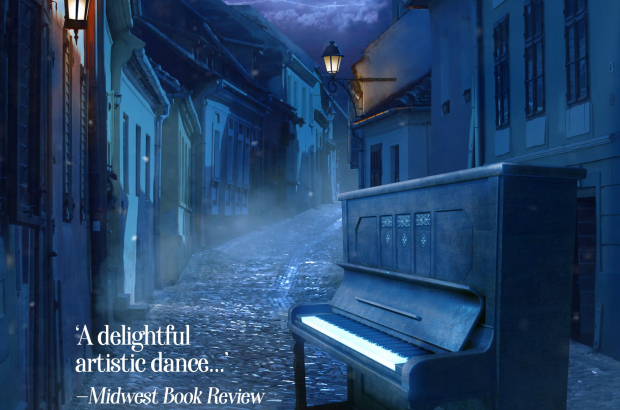- Daily & Weekly newsletters
- Buy & download The Bulletin
- Comment on our articles
Writer Leona Francombe reveals how her new novel was inspired by finding a piano on a Brussels street
Writer and musician Leona Francombe (pictured below) was inspired to write The Universe in 3/4 Time after rescuing a piano abandoned in the street near her Brussels home, late one winter’s night. The resulting novel is a mystery story: a music-themed tale that travels back and forth between the present day and the period of occupation in 1940s Belgium, Prague and the Pyrenees.
Francombe’s previous books include The Sage of Waterloo, published in 2015 to coincide with the bicentenary of the Battle of Waterloo. Born in the UK to English and Czech parents, she emigrated with her family to the US at a young age. After studying in the US and other countries, she moved to Belgium over 30 years ago.
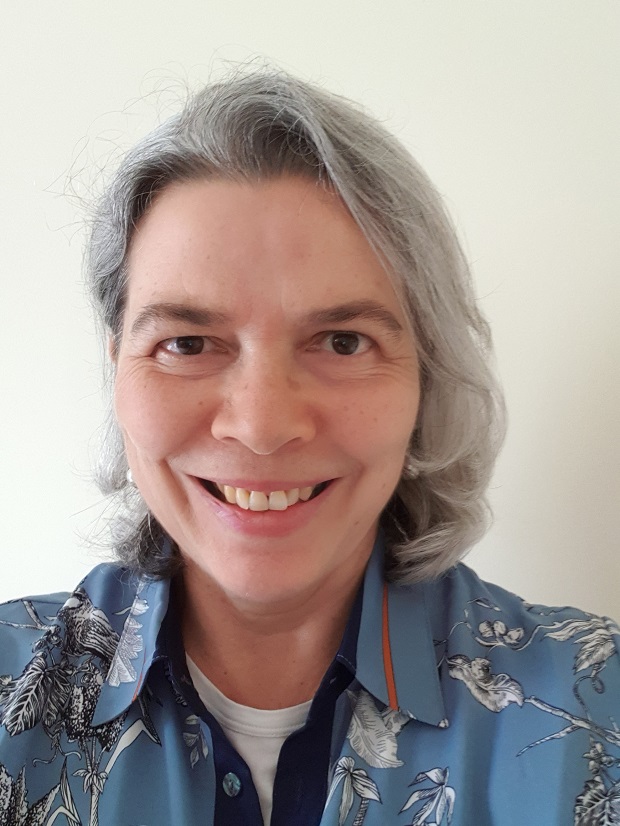
Your heroine Audrey Nightingale is a pianist and music is at the heart of the novel. Is it always the starting point for your writing?
In this novel it’s really front and centre. Although Audrey is a pianist and I’m a pianist, she’s a strange alchemy of a musician—part autobiography and part pure fiction. The event that set off the story was finding the piano in the street. It was a wintry evening with a typical northern European mist when I came across this really beautiful rosewood piano (pictured below) not far from my house. I woke my husband, and together we dragged this orphan home and adopted it. The amazing thing was that when I asked around the next day, no one in the street knew anything about it. It was a real mystery. I was inspired by the state of the piano, which had beautiful keys made out of cellulose, not ivory, commonly used in the 1930s and 40s. The rosewood – like Audrey’s piano – was beginning to buckle in the humidity. It’s totally unplayable; my tuner was most disrespectful, but it’s beautiful to look at. It’s sitting next to my other piano now and they’ve become great friends! My late father’s name was Maurice, and when I opened the rosewood key cover, it had the name Saint-Maurice inlaid in brass, and an address in Paris. In the book, I changed the address to a location in the Czech Republic, but seeing his name during this mystical urban encounter was really strange, and one of many mysterious aspects of the event.
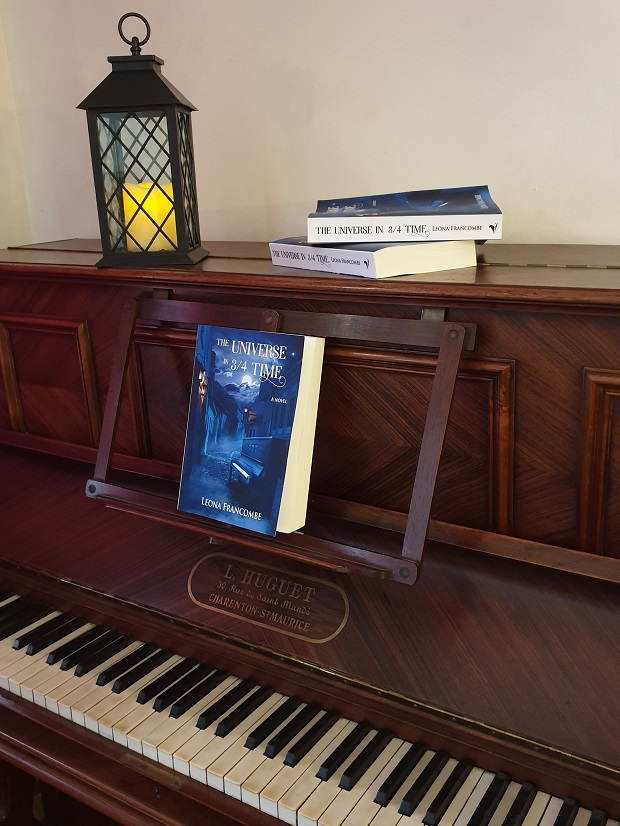
Why did you set the novel in Brussels and other parts of Europe that you are familiar with?
I’ve been in Brussels for many years and I love it in many ways, even if it’s not always an easy place to grasp to begin with. But I immediately found it very evocative and a suspenseful, atmospheric place in which to set a book. In Belgium, what some people think of as cold and stand offish is creative food for me. For example, Audrey’s landlady ‘the badger’ was lifted from a landlady I had in my old neighbourhood in Rue du Bailli. I’ve played in Prague many times and have visited family and friends there since I was 14, so that city, too, is full of character and damp nuance.
Your writing is highly evocative. How would you describe your style?
I’m a hopeless romantic! That said, it’s hard for an author to describe her own writing. I’ve always been told that I have a literary style. I don’t write thrillers, and if I did, I’d perhaps make a bit more money! But I’m certainly taken by atmosphere and intrigue, and I think my writing is slightly old fashioned, hopefully in a good way.
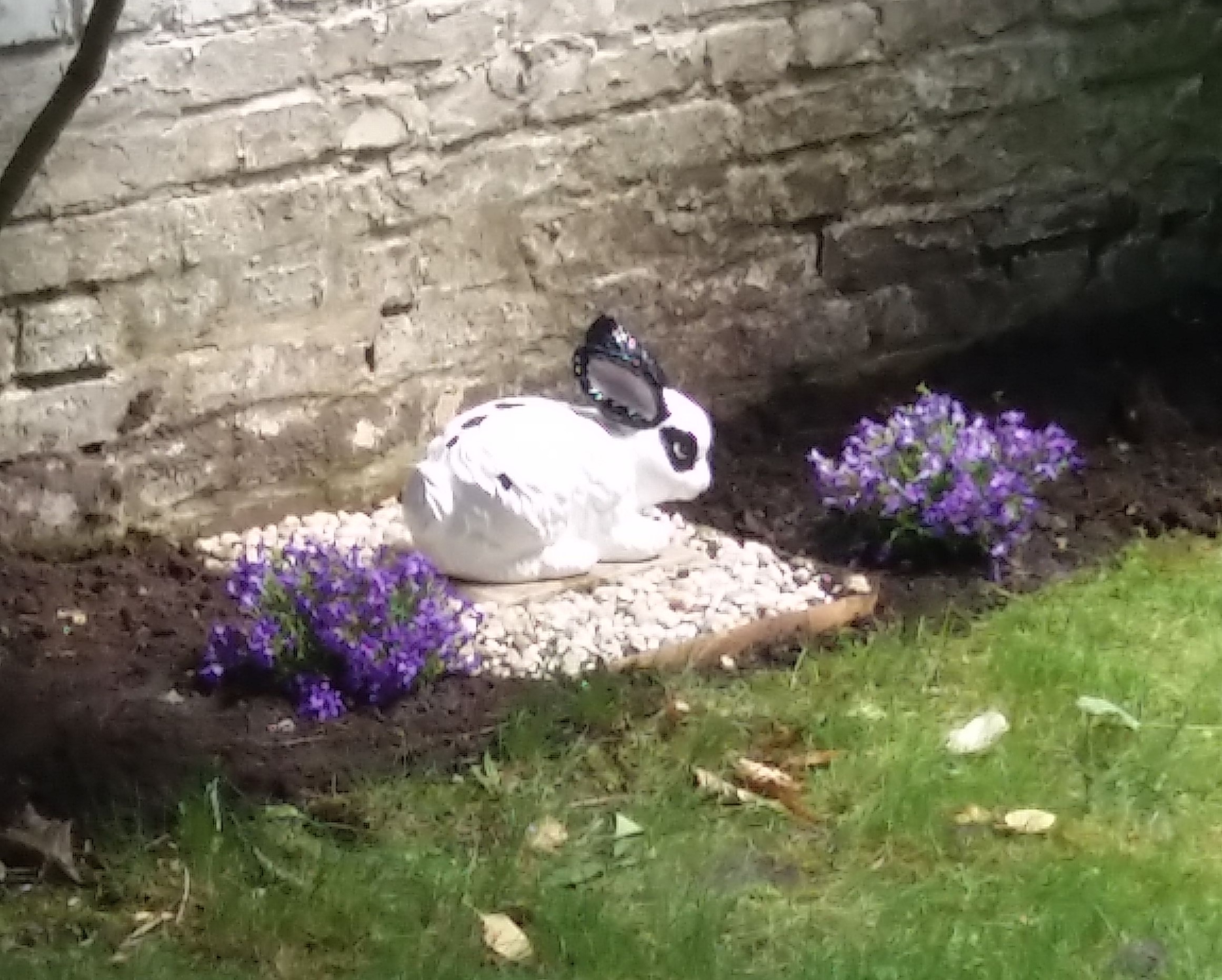
What was the inspiration for your previous work, The Sage of Waterloo?
That was also an alchemy of emotions and circumstance. A rabbit narrates the tale, based on our own family rabbit. At the end of his very long life (final resting place, pictured above), I wanted to playfully write his autobiography as told to me, his biographer. I often walked in Waterloo and the idea came to combine the tale with the bicentenary that was coming along. I visited the old Hougoumont farm before it was renovated. There was an area where small animals were kept and the whole place was very run-down and atmospheric, which spurred the other dimension to the story. But my books are not historical novels per se. What intrigues me most about old European cities is how present history is. It’s all around us and that’s the sort of atmosphere that I try to convey. People generally ignore or walk past these places, having no idea that someone was executed there, or did something remarkable, or that someone fascinating was born in a particular building.
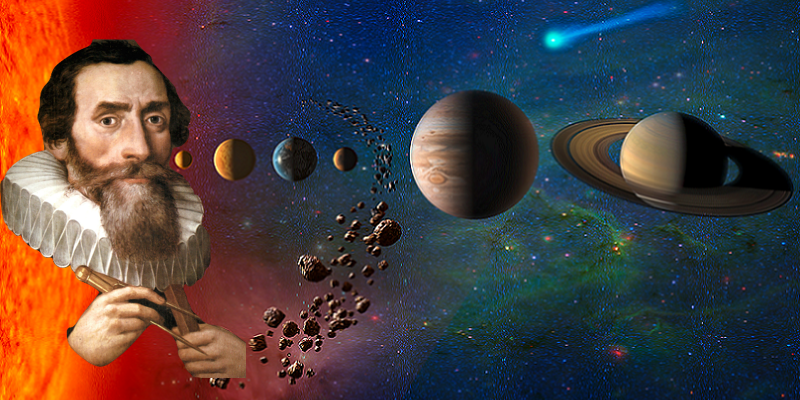
How long did it take you to write The Universe in 3/4 Time?
The present novel is a complete reworking of an earlier one. I made a trip to southern Germany, where the great 17th-century scientist and astronomer Johannes Kepler (illustration above) was born. I’ve been fascinated for many years by his notions of planetary harmony: old ideas that have long been dismissed. With the piano on the street, I already had a sense of musical mysticism for the story. But meeting the ghost of Kepler in his birthplace really set in motion the whole historical basis for this tale. I found an agent in the US for the initial novel that I wrote five years ago, but she didn’t manage to sell it. I was disappointed and put it away. When the pandemic came along, I decided I needed a project and took it out again. It needed a complete re-write. Most of the characters and plot lines are the same, but it’s a completely different book in many ways… not least because I published it myself. It would have taken two or three years to find an agent and a publisher. I’ve done it twice before, but it’s very arduous each time. As for the length, I had the choice of how it would be printed, and chose a pleasant typeface to read. I realised that people’s eyes are aging, so I used a very nice font, which unfortunately makes the paperback a bit heavier [there is also an eBook version].
How do you combine writing and playing the piano?
I have performed all my life. Around 15 years ago, I took a completely unexpected turn as a composer when I was asked to play at a wedding of a friend at the Astoria Hotel. I was already at a crossroads as a pianist and wanted to be more creative, so I wrote a piece for her wedding. It turned out to be the first work on the CD that I brought out a year later. I also decided that for each book, there would be a piece of music. For The Sage of Waterloo, there was Waterloo Meditation. For The Universe in 3/4 Time, the piece is called Kepler’s Waltz. There’s a book trailer on YouTube, and the images were put together by my son, who’s a graphic artist. So I’m developing a real synergy between storytelling and composition.
How do you view your identity and what do you appreciate about life in Belgium?
Identity is tricky. I think it’s a sign of the times that many people move or emigrate and they hold on to different parts of their identity in a positive way. I’m English, Czech and American, and in a strange way, after Brexit, I realised that I was Belgian more than anything else. I have two children who were born and educated here. My parents were themselves immigrants: my mother left Czechoslovakia in 1949 after marrying my father, who was English. The Communists had taken over in 1948 and citizens were being arrested for marrying foreigners. I think they started this restlessness in the family. There’s an understated charm about Belgium. I find that it has this gentle view of itself and a quiet humour. It also absorbs everyone; there are hundreds of nationalities here and that makes it fascinating as well as welcoming.
Where is your new book available for sale?
At the moment, it’s only available as a physical book on Amazon. I know this is a delicate subject for publishers as well as booksellers. The problem with only having it on one platform is that it isn’t distributed physically to book shops, but I hope eventually to be able to do that. I’m also available to talk to book clubs by Zoom. I won’t spoil the fun, but as a little teaser, I’ve included names in the book that are a hat tip to a venerable Belgian institution.
Sorry! Our prize giveaway has now closed and the winners have been notified.











